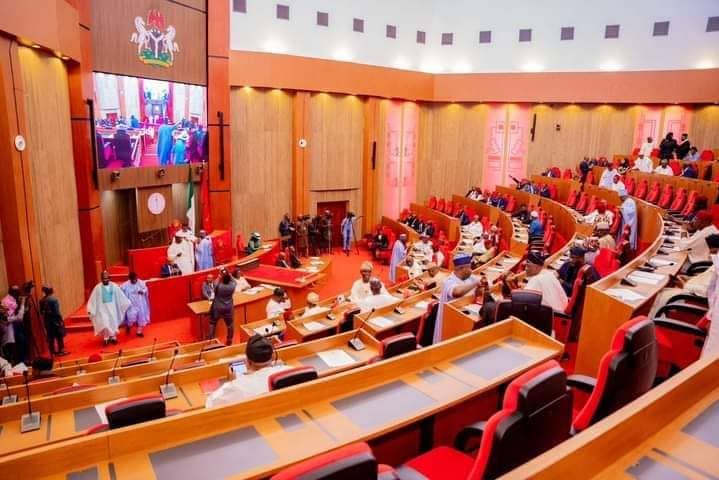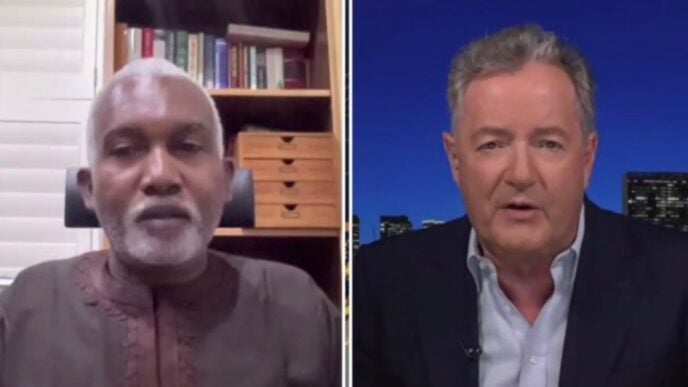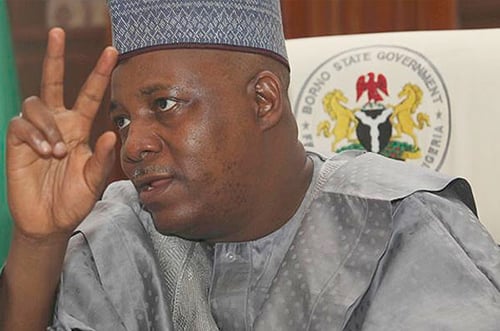The senate | File photo
The senate was divided on Thursday over a bill seeking to establish the Chartered Institute of Revenue and Fiscal Management of Nigeria, a proposed professional body to promote excellence, transparency, and accountability in fiscal governance.
Adamu Aliero, senator representing Kebbi central, sponsored the bill, titled “A Bill for an Act to Establish the Chartered Institute of Revenue and Fiscal Management of Nigeria and for Related Matters, 2025 (SB. 614).
Leading the debate on the bill, Aliero said the proposed institute would regulate fiscal management practices, monitor compliance with professional standards, and strengthen Nigeria’s economic management framework.
“The institute will monitor the conduct of its members and ensure compliance with technical and professional standards,” he said.
Advertisement
“It will serve as an advisory body to the government on fiscal policies and revenue management strategies.”
He added that the body would “conduct studies to improve fiscal systems and, by professionalising the revenue sector, equip Nigeria to tackle challenges such as inefficiency, weak collection processes, and revenue decadence”.
Aliero explained that the institute would “enhance fiscal discipline, build a cadre of well-trained professionals, promote transparency and efficiency, attract investors, and drive economic growth through global competitiveness.”
Advertisement
He added that the bill also aims to “provide opportunities for Nigerians to acquire advanced skills in revenue and fiscal management, while improving coordination among relevant agencies and stakeholders”.
According to the senator, Nigeria’s revenue challenges have deepened over the years, with the debt service-to-revenue ratio rising sharply from 65.8 percent in 2019 to 143 percent in 2021 due to low earnings and mounting obligations.
Sani Musa, a senator representing Niger east, supported the bill, describing it as “a step toward improving fiscal discipline and boosting government revenue”.
Aminu Tambuwal, senator representing Sokoto south, said the bill would “build capacity among professionals and improve the management of public finances”.
Advertisement
Tokunbo Abiru, senator representing Lagos east, also backed the proposal but cautioned that lawmakers must consider its implications for legislative oversight.
However, several senators opposed the bill, warning that it duplicates the functions of existing professional bodies.
Aminu Abbas, senator representing Adamawa central, said the bill lacks clarity on how it differs from other institutions.
“We should have a clear difference between this and existing agencies,” Abbas said.
Advertisement
Ibrahim Dankwambo, senator representing Gombe north, also rejected the bill, citing existing bodies that perform similar roles.
“Fiscal policy is taxation. We already have the Chartered Institute of Taxation, ICAN, and ANAN performing similar roles. This is duplication,” Dankwambo said.
Advertisement
Rufai Hanga, the senator representing Kano central, described the proposal as unnecessary.
“If we keep duplicating laws, it looks like we don’t have anything doing,” he said.
Advertisement
Aliyu Wadada, senator representing Nasarawa west, echoed similar concerns, noting that Nigeria was still struggling with transparency among existing fiscal institutions.
In defence of the bill, Orji Kalu, senator representing Abia north, urged his colleagues to allow it to proceed.
Advertisement
“It will be unfair to kill this bill. The committee will do a thorough and professional job,” Kalu said.
Abdul Ningi, senator representing Bauchi central, also supported its passage.
“No bill is perfect. Even if there is one benefit, it is our job to refine it at the committee stage,” he said.
When Barau Jibrin, deputy senate president and presiding officer, put the question to a voice vote, the chamber was sharply divided.
The ‘nays’ were notably loud, prompting him to call the question three times before ruling that the ‘ayes’ had it.
Barau thereafter referred the bill to the committees on finance, establishment and public service matters for further legislative work, directing them to report back within four weeks.










